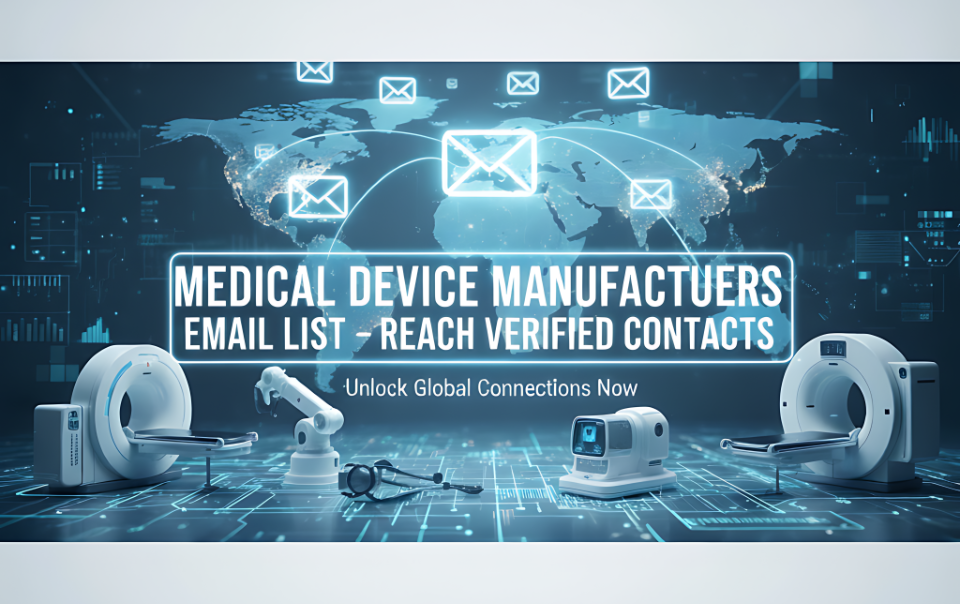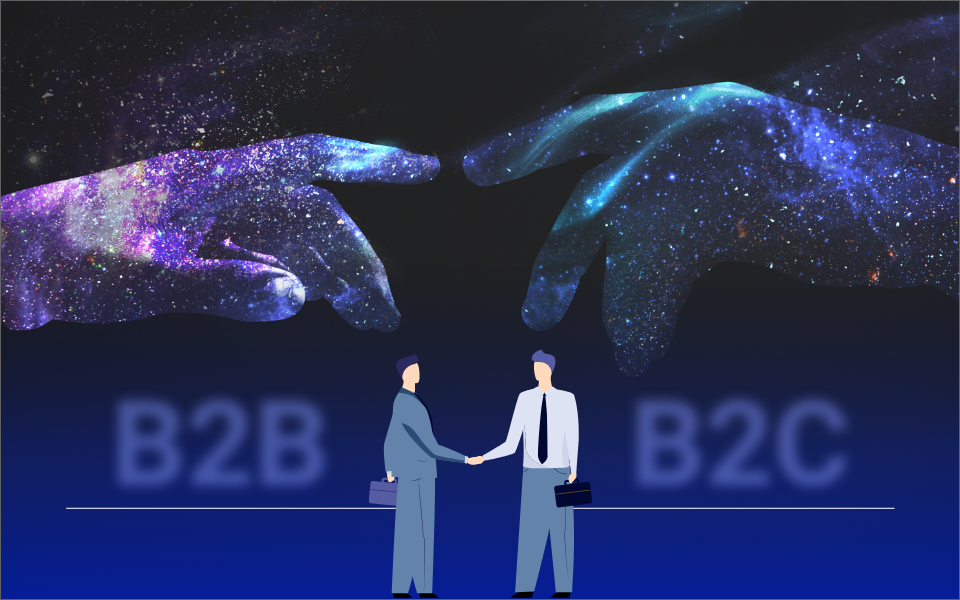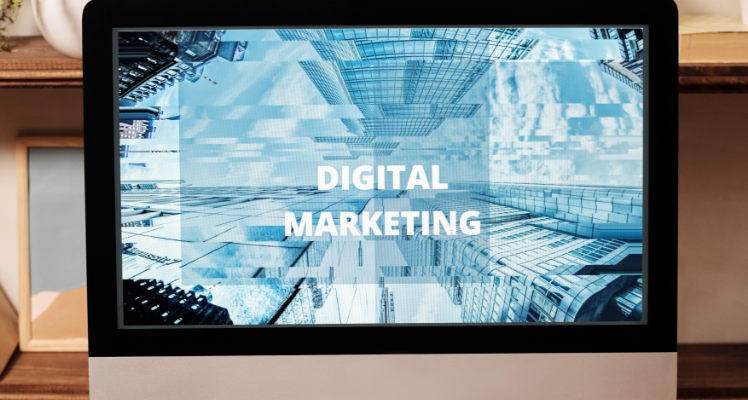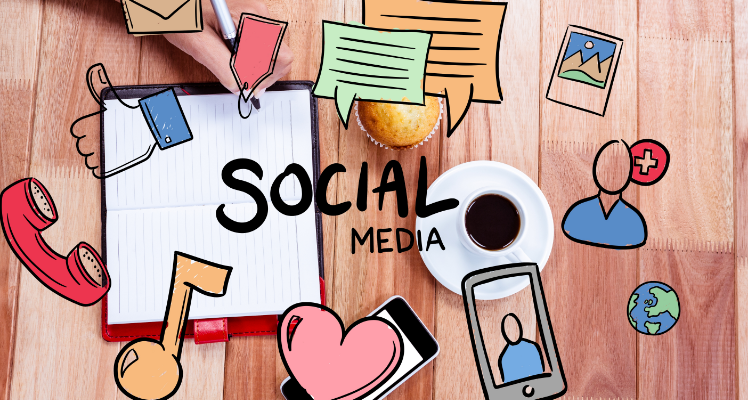

A quick recap
Before starting the core journey, let us have a quick recap of the already known concepts.
B2C marketing methods are focused mainly on the needs of individual consumers and offer products/services or solutions addressing the pain points of their daily lives and struggles. An example would include sales of personal care or oral hygiene products with the target audience having acne or plaque problems. Emotions play a major role when making purchase decisions.
B2B marketing methods include advertising, direct mail, email marketing, telemarketing, ABM, Drip Marketing, and many more businesses. Logic, rationale, and other data-driven insights drive the purchase decisions.
B2C marketing is evolving fast because of the rapidly growing market. Although the industry itself is highly competitive, the internet has made it easier for marketers to scale their business and reach massive audiences. Thus, it seems that B2C marketing is not just about getting qualified leads, but also about making sure that the company has an organic presence on social media.
Many companies also implement aggressive strategies to provide useful customer information to their customers. For instance, influencer marketing, account-based marketing, social media targeting, or promotional coupons are examples.
Marketing is an art that needs creativity. However, there are many unknown parameters in marketing and it takes a lot of experience, knowledge, and skill to make the right decisions. One such aspect is marketing in the B2B industry. The importance of marketing in the B2B industry cannot be overstated. This article explores some areas in which B2B marketers can learn from B2C marketers.
The first strategy we would like to emphasize is Digital Marketing. It has become an intrinsic marketing component for both B2C and B2B brands alike. Despite the differences in content consumption patterns in each industry, digital mediums are a great way to reach out to them.

It is more apparent in the post-COVID world, in which people seek information, communicate, and even purchase in completely different ways. B2B marketers must learn that increasing online activity, shrinking marketing budgets, and remote work all underscore calls for them to adopt and implement proven digital strategies.
Another effective marketing strategy is to increase personalization. While shopping for a brand and getting involved with it, buyers expect personalized content and clear communication. Similarly, B2B marketers too can use upbeat, personal tones while communicating, one marketing tip that B2B markets can definitely learn from B2C counterparts. The strategy also helps cultivate better connections and foster a better brand experience.

Emails or email marketing are a great way to send personalized content and have a direct conversation. Many contacts opt to receive communication because they want to hear from you, and as a marketer, you use that connection to the best advantage. Personalize emails by addressing the recipients by their first name. Consider adding holiday or seasonal content to your emails, adding customer appreciation posts, or simply showcasing your company’s personality through fun footers and subscription preference messages.
Marketers can nurture long-term relationships with their customers by using marketing channels such as emails, texts, social media marketing, LinkedIn, etc., or text message marketing. It also illustrates that someone who is not quite ready to make a purchase might collect information for later use. Omnichannel strategies adopted by B2B marketers, like trigger-based email campaigns, provide subscribers with a unique experience.
A modern-day B2B marketer must harness the power of social media, it should not just be the realm of B2C marketers. For B2B marketing and sales, it’s easy to forget that they are selling to people, not just companies. B2C brands have many social media tactics at their disposal – including promoted posts, user-generated content, and influencer marketing.

Finding the right audience and targeting them with personalized messages on social media can lead to increased brand awareness and conversions. Marketers can also use various tools to identify and target prospects.
PDL’s extensive B2B database is built to suit social marketing campaigns.
The growth of social media platforms like Instagram has given rise to Influencer Marketing. Although not a new idea, it gained traction in the last few years, especially with B2C brands to grow business.
5.1. For a B2B brand to be associated with any influencer, make sure that the brand is on the exact social media platform where influencers exist.
5.2. Also, identify influential users with a large number of followers to make your campaigns go viral.
5.3. The third step is to use social media listening tools to monitor conversations in social media about the brand across multiple platforms and topics.
5.4. Lastly, find out which channels provide good opportunities for influencer marketing campaigns with tools such as Google Trends and Keywords Planner by Google Incorporation. Influencer marketing can be an effective tool for advertising, but only when influencers are aligned with your brand and its mission.
When sales representatives are quick in their responses to prospective clients and reply fast, it leads to faster closure of sales deals. In the digital age, the number of options available to prospects is snowballing for any service.

B2B buyers must have numerous prospects in their sales funnel at a time to generate revenue from multiple sources. But how do you do this? The key lies in faster communication. This can mean communicating with your prospects via email, phone, or in person. It can also include a personalized phone call for each prospect and follow-up after the purchase.
B2C marketing relies heavily on predictive segmentation to offer content they are likely to be interested in. Earlier, B2B segmentation was solely limited to the industry sector, size of the organization, and geographical location. Buyer expectations of increased personalization can help B2B marketers to focus on better segmentation of the buyer audience.
They can design more focused marketing tactics for better sales. Predictive segmentation will also enable businesses to segment their audience based on their reactions to marketing trends and potential changes in the product. As a marketer, you must take advantage of segmentation before new launches or announcing pricing.
Get the best B2B tips about marketing and a high-quality database to facilitate multi-channel campaigns, just from ProDataLabs. ProDataLabs is a house of premium B2B databases, providing contact and company details from 50+ industry sectors and 170 countries. Explore our data services like data appending, lead generation, etc. to get 360-degree assistance for marketing requirements.
Both the above marketing is way apart from each other in terms of ROI, revenue generation, and sales pipelines, still, the traits that B2B marketers can be inspired by B2C are enormous. Develop relationships with businesses that might lead to long-term success.
The main idea behind it is to target potential clients better and on a larger scale. Remember, despite having watertight compartment differences, it all boils down to person to person, the ultimate power behind the finalization of deals.